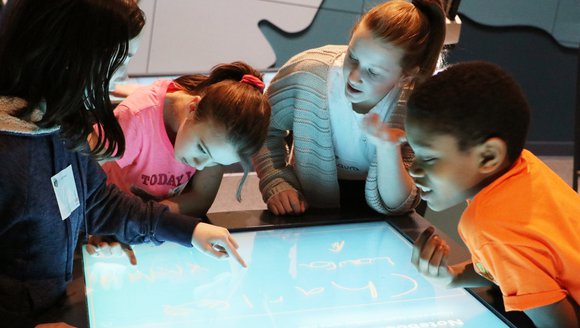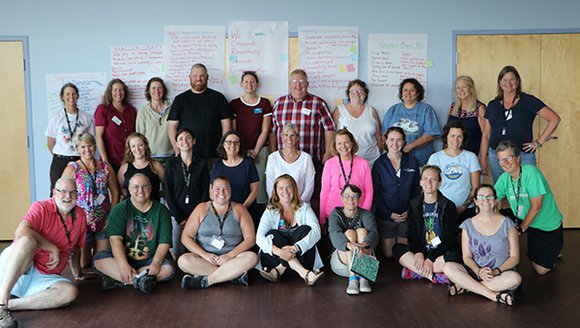Learning Sciences
Learning is more than just memorizing facts.
Our lab seeks to advance the scientific understanding of teaching and learning by thoughtfully inquiring into the relationships between content, students, teachers, and the context in which learning operates. We focus our work along two interrelated strands of research — design and cognition — and investigate questions related to the structures and processes of learning. We also investigate the sociocultural dynamics of teaching and learning, and how cognitive, material, and social dimensions of learning interact to inform the design of meaningful learning experiences.
Our Goals:
- Explore and understand human cognition in its material, social, and cultural contexts.
- Position learners as contributors of knowledge-making in science.
- Develop learning environments that highlight modeling as the central epistemic practice across the STEM disciplines.
- Support educators by developing evidence-based claims about the nature of learning that have practical and pedagogical implications.
Lab Team
Our Methods
Our lab works collaboratively to understand human cognition and development.
We combine experimental studies and rigorous qualitative analyses with design-based research methodologies in order to develop new theories and frameworks for understanding human cognition and development. Interdisciplinary collaboration with educational staff and researchers at institutions across the nation are a crucial component of our research.
-
Experimental studies
-
Qualitative analyses
-
Interdisciplinary collaboration
-
Design-based research
Our lab works collaboratively to understand human cognition and development.
We combine experimental studies and rigorous qualitative analyses with design-based research methodologies in order to develop new theories and frameworks for understanding human cognition and development. Interdisciplinary collaboration with educational staff and researchers at institutions across the nation are a crucial component of our research.
- Experimental studies
- Qualitative analyses
- Interdisciplinary collaboration
- Design-based research
Lab Projects
Explore our learning sciences projects
-
![Teaching and Learning Ecosystem Modeling]()
Teaching and Learning Ecosystem Modeling
This research project investigates the development of middle-school students’ understandings and practices of modeling in the context of investigations of variability and change in ecosystems. …
-
![Supporting the Development of Socioecological Literacy]()
Supporting the Development of Socioecological Literacy
This project advances efforts to better understand and promote practices that broaden access to and interest in regionally relevant science, technology, engineering, and math (STEM) …
-
![Broadening Access to Computer Science in Middle Schools]()
Broadening Access to Computer Science in Middle Schools
This project aims to develop a teacher professional learning community centered on the integration of computer science with regular middle school math and science instruction.
-
![LabVenture Learning Retention and Engagement]()
LabVenture Learning Retention and Engagement
This research project investigates the power and potential of visual representations and conversational reflections in supporting scientific discovery and learning during and after LabVenture, our …
-
![Revealing the Systemic Impacts of LabVenture]()
Revealing the Systemic Impacts of LabVenture
This research project investigates the short-term and long-term impacts of the LabVenture program on Maine’s students, families, and learning communities in terms of their perception …
Read More
-
2020 LabVenture Annual Impact Report
Whether face-to-face or online, over the course of the 2019-2020 school year we engaged students in deep and authentic scientific inquiry to uncover new knowledge …
Reports
-
Education Team Introduces Home Delivery
This spring, our Education team introduced Home Delivery, a menu of online learning experiences adapted from our existing education programs.
Announcements
-
Voices of the Gulf of Maine: The Educator
Teachers have a truly powerful role in inspiring our next generation of scientists, leaders, and environmental stewards. We would not have the impact we do …
Voices of the Gulf of Maine
-
For Rural Teachers, Nothing New About Physical Distance
Learn more about our Regional Teacher Communities, which connect teachers from remote areas of the state to share STEM teaching experiences.
Perspectives








